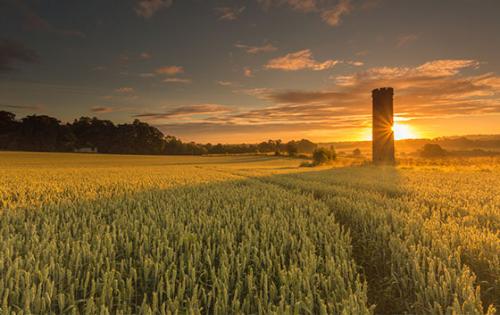
The environmental challenges facing our planet have never been more acute. SEFARI research helps to show how we can protect and restore our natural capital – our soils, biodiversity and ecosystems – and develop effective ways to manage the land and water to improve environmental condition. SEFARI works to better understand how biological, chemical and physical processes can allow us to tackle climate change, adapt to changes coming our way, and build a more resilient and well-functioning environment.
Sector Contact
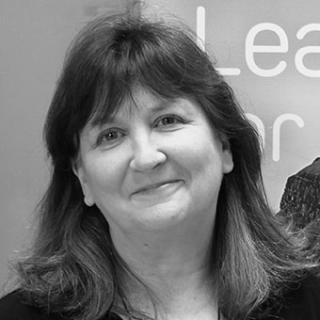
Case Studies
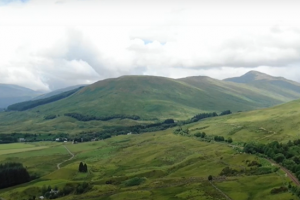
With the UN Climate Change Conference (COP26) underway, there is a spotlight on initiatives being taken by countries to address climate change. Do you want to know what Scotland is doing about it? Then join us on a virtual tour of some of SEFARI’s fascinating climate research.
From exploring windy Aberdeen Bay to visiting Scotland’s marshy peatlands, the tours offer a behind the scenes look at some of our innovative research which is seeking to help Scotland address and adapt to the climate crises. What’s more, you can enjoy the experience from the comfort of your own sofa and at your own pace.
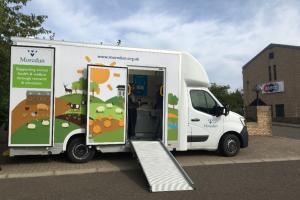
In September, colleagues from the Moredun Research Institute, SEFARI Gateway, the Food and Drink Federation Scotland (FDF Scotland), Royal Highland Educational Trust (RHET) and Quality Meat Scotland (QMS) outlined a wealth of educational resources that cover the sustainability of key resources such as food, water, and energy. A key priority for the younger generation especially with COP26 on the horizon, and on our doorstep!
By joining forces at a continuing professional development (CPD) event, organised by the Scottish Schools Education Resources Centre (SSERC), our session was designed to support teachers with the delivery of National 4, 5 and Higher Environmental Science. The session ended by moving outside of the classroom to see the new mobile laboratory and education bus, created as part of Moredun’s centenary, which is being used to visit schools and engage children with different science topics. Seeing the bus gave us the opportunity to extend discussions in a more relaxed environment out in the autumn sunshine.

From waterfalls to lochs, hydroelectric power to fisheries, Scotland is a country shaped by, and built on, its precious water resources. In this exciting campaign we invite researchers, industry, NGOs and the public from across Scotland to share your experiences, knowledge and expertise of our water resources. If you enjoy the water environment for leisure, relaxation, study, or work and want to share your knowledge and experience please read on.
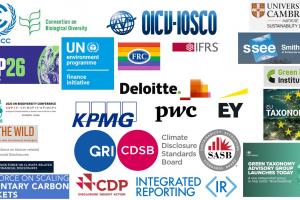
This year, 2021, has seen a lot of activity spanning climate and biodiversity international agreements, national and organisational level initiatives related to the 2015 Paris Agreement and run up to the Convention on Biological Diversity Conference of the Parties (COP15) meeting in Kunming, including the proliferation of net-zero pledges. In this blog post, Kit Macleod, James Hutton Institute, provides an overview of corporate sustainability reporting and financial disclosure initiatives related to the climate and biodiversity crises, and some of the challenges faced when undertaking these activities.
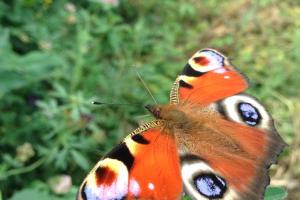
The farming community are under pressure to not only produce more food and remain profitable but also for their practices to be more sustainable. Despite these pressures, the farming community is experimenting, adapting and sharing their findings. In this blog, Dr Lorna Cole, SRUC, discusses a series of online Think Tanks capturing the wide variety of practices that farmers are trialling, and to share ideas on how wider outcomes could be monitored, in a SEFARI Gateway Responsive Specialist Advisory Group project.
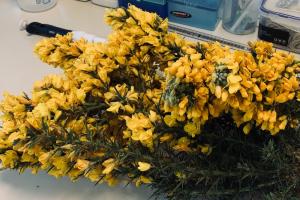
Agriculture bears the brunt of having to reliably supply food, ensure its own economic viability, while complying with environmental concerns. Farming comes under a lot of pressure to deliver produce, despite unfavourable climatic variation, changes in pest behaviour and the control of invasive plants.
In this blog, Ajay Iyer and Wendy Russell consider a different approach and discuss how invasive or “undesirable” plants such as Gorse (Ulex europaeus) could serve as an alternate and sustainable source of protein.
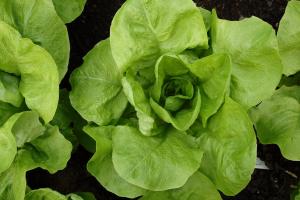
Zoonotic pathogens are microorganisms transmitted by animals, which cause disease and illness in humans. Many of them are foodborne and are commonly associated with farmed animals, or less frequently with wildlife. However, some pathogens are also transmitted into the food-chain indirectly from animals onto plants, via faecal contamination of water used for irrigation or via the soil where the plants grow. If the plants are destined for consumption, e.g., fruit and vegetable crops that are normally consumed raw or minimally processed, this can become a foodborne hazard.
Surprisingly though, there is still a misconception that plants play only a minor role in zoonoses survival and spread, even though fresh-produce accounts for similar numbers of foodborne outbreaks as meat or dairy. At SEFARI our researchers contribute to work in this area and are part of only a relatively small number of researchers in the UK & Ireland who do. In this blog, Dr Nicola Holden discusses how SEFARI research fits into this complex issue, outlines the key risk factors (illustrated with examples) and identifies what questions still need to be addressed.
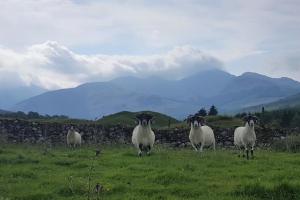
With the pandemic turning our lives upside down, the use of digital communication has accelerated overnight. Webinars, Teams meetings, Digital classrooms, Virtual brainstorming boards, to name but a few. They have all helped in keeping us connected from the safety of our own homes. However, these virtual technologies achieve so much more than simply enabling conversations to continue. They have removed barriers - social, physical, economic, geographical - and in removing these barriers they have made research more accessible.
In this blog, Dr Lorna Cole, discusses the recent creation of a series of virtual tours at five of our leading SEFARI research farms, in a SEFARI Gateway Responsive Opportunity funded project. The tours are readily accessible through the Google Earth platform, giving everyone access to the countryside and allowing us to learn more about the research that is being conducted on SEFARI’s research farms.
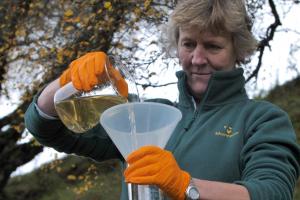
The protozoan parasite Cryptosporidium is a significant cause of diarrhoeal disease in humans and animals in UK and many other countries across the world. Cryptosporidium are highly successful parasites as they can infect many different hosts, multiplying in the gut and then shedding millions of parasite oocysts (eggs) in the faeces, where they can contaminate the environment and are a source of infection for other hosts.
SEFARI research is increasing our understanding of the sources of Cryptosporidium parasites, and the transfer of oocysts from host faecal material through the environment to water courses. This work will help with developing strategies to protect water catchments.
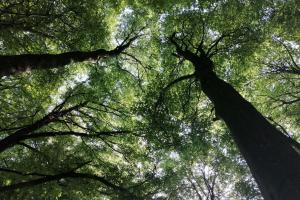
The past year has been, and 2021 will undoubtedly remain, challenging for us all. At Gateway we are focussing our efforts on continuing to support the COVID-19 recovery response while maintaining momentum for knowledge exchange partnership working across environment, land, agriculture, food and rural community priorities.
In particular, we are building upon opportunities to accelerate action towards a green recovery, climate and biodiversity action and just transition for net zero emissions. Gateway is supporting these and other key agendas such as health and wellbeing, by providing extensive access to Scottish Government strategic research and expertise through our funded projects which we are also increasingly interlinking projects to maximise the value of evidence and to further enhance stakeholder linkages.
This update follows on from our previous update in June 2020 and outlines our more recent funded projects and activity.
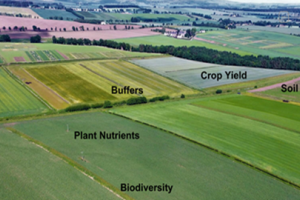
Currently, we are all experiencing unique working conditions, leading us to adapt to new ways of engaging and learning.
In this blog Dr Claire Hardy, who was awarded SEFARI Gateway Responsive Opportunity Funds, explores the use of virtual technology to engage farmers and the agricultural community, helping farmers to experience in-field events safely, flexibly, and remotely.
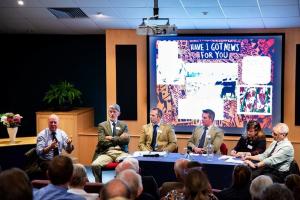
In this blog, we discuss a new project that is seeking to support and inform farmers (through both research and communications) on how to best promote fair, balanced, and more impactful, positive stories about the livestock industry.
Through a collaborative approach, we can increase public knowledge and understanding on how Scots beef and lamb is produced, leading to a wider and better understanding of the Scottish livestock industry, including the positive benefits of eating safe and nutritious food, alongside the environmental, social and economic benefits that livestock farming can bring.
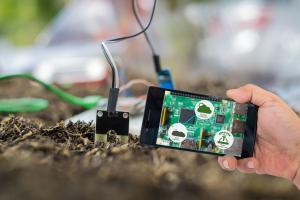
We are delighted that in this blog Dr Kit Macleod from the James Hutton Institute discusses how his fellowship is helping Scotland’s environmental monitoring community discuss and learn about new opportunities for environmental monitoring.
A SEFARI Gateway Fellowship seeks to improve the flow of research, knowledge and expertise to and from the Strategic Research Programme to our stakeholders. Fellowships provide support for a member of staff to undertake a new knowledge exchange role to facilitate these interactions and activities with key partners.
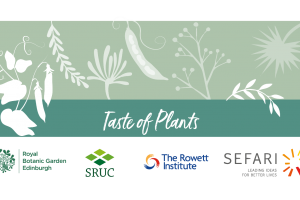
Eating a nutritious and more environmentally sustainable diet is an increasing priority. Growing and consuming novel crops could form part of the solution.
In this blog, we discuss how we have been working to engage consumers and those connected with the food supply chain with our research on crops such as green pea, fava bean, hemp and buckwheat. A recipe book, video, and networking event (supported by SEFARI Gateway's Responsive Opportunity Fund) have been developed to provide a novel and informed perspective on ‘A Taste of Plants’.
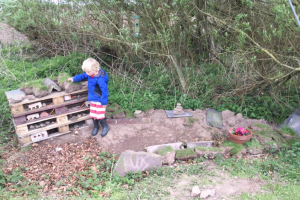
As part of a series of educational materials being released by SEFARI, this blog offers an outdoor and active learning activity, whilst helping the environment too.
This activity, for children, is suitable for your own back garden and finds a good use for your garden waste by building shelters for your local wildlife from readily available natural materials.
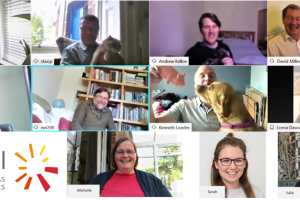
In this blog, we thought we’d let you know the latest developments from SEFARI Gateway, as we continue to work together even though we are currently physically apart.
For us, lockdown has really emphasized our love of nature (on daily walks, in the garden or by virtually meeting each other’s pets, now so much a part of the virtual meeting world!). Gateway’s work itself has been intensive. The strengths of our stakeholder partnerships and an adaptable approach to connecting across knowledge networks has hugely benefitted us and provided new ways to work.
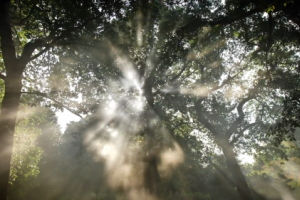
In light of both climate change and the COVID-19 pandemic, the question of food security is increasingly important. Changes in rainfall and temperature, caused by climate change, will affect crop harvests and this could impact upon the availability and price of food. While the pandemic is also affecting the food system and this will include both the production and transportation of imported food from agricultural-producing countries. In this blog, we discuss plans that have these global issues in mind which could involve utilising tree waste for the benefit of human digestive health.
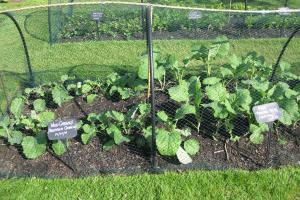
In these current challenging times, those of us lucky enough to have a garden, allotment or even a small amount of space in a window-box might be considering ‘growing our own’ food and wondering what we should plant. With a plethora of mail-order seeds available deciding what to grow can be challenging.
Here we consider the health benefits of eating edible wild plants, highlighted by ongoing SEFARI research.
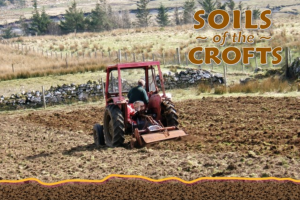
In this blog, Professor Lorna Dawson outlines why soil is so important and how she has been involved in creating a range of online, free to access, educational resources on soils - focussing in particular on the soils of the crofts.
Resources, that can readily be undertaken at home, include a range of practical activities such as cooking, crosswords, creating a wormery, making a composter - as well as suggestions for those interested in learning more about soils, crofting and rural communities.

In this blog we discuss our new project called Diet Detectives, which is supported by SEFARI Gateway's Responsive Opportunity Fund. Helping young people understand where their food comes from and how to eat a balanced diet has always been a key goal of the Rowett Institute's research and community outreach programmes. We are facing a climate emergency and this activity introduces ideas behind the environmental impact of diets and how the food we choose to eat can have an impact.
Pagination
Blog
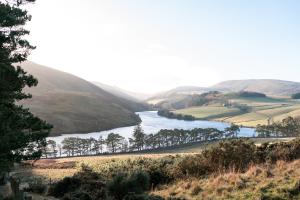
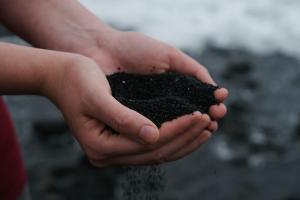
On April 14th, 1935, the largest dust storm in American history occurred. A black cloud carrying 300,000 tons of topsoil from the Great Plains deposited dust as far away as New York.
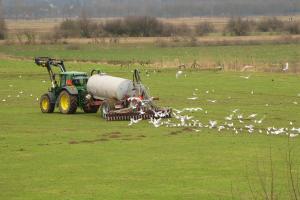
Domestic agriculture provides most of our food consumption and contributes to export revenues and rural livelihoods. At the same time, it is a key sector where management and production changes can reduce pressure on the environment, including air, water, climate and biodiversity.